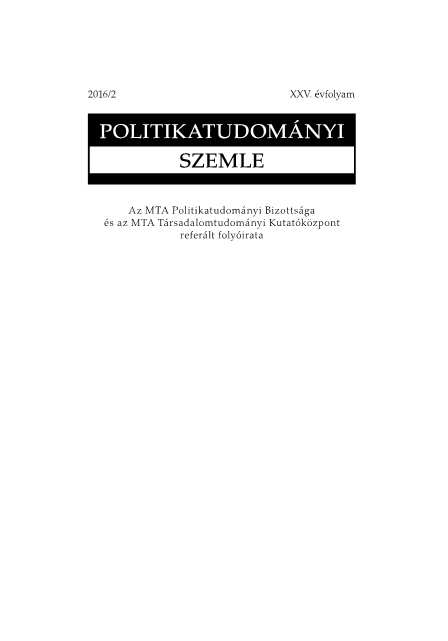Virális politika
Viral Politics
Citizen’s Re-activity on Facebook Pages of Candidates
Author(s): Márton BeneSubject(s): Politics / Political Sciences, Media studies
Published by: MTA Politikai Tudományi Intézete
Keywords: political communication; social media; Facebook; interaction; campaign
Summary/Abstract: The study examines what kind of content can trigger reactions from followers on candidates’ Facebook pages. In the age of social media the communication of citizens has been more appreciated, because their potential reach has dramatically expanded. Now, politicians are not only seeking to trigger reactions from mass media, but the communicative, interactive citizens have also become important for them. Facebook has become a crucial campaign tool, despite the fact that most politicians are followed only by small, likely partisan segments of their voters. Politicians, however, can reach the wider Facebook public even through triggering continuous reactions from this small number of followers. As citizens’ communication and reactivity work differently from mass media reactivity, this shift in the focus may change the nature of political communication. Therefore understanding the way citizens react to and communicate about politics on social media is important. The database contains all Facebook posts of the three of the most voted candidates from all single-member districts. That means a total of 7048 Facebook posts of 183 candidates. The unit of analysis is the individual Facebook post and the dependent variables are number of likes, comments and shares they get. The independent variables are the structural (text, picture, video, etc.) and the substantial (content, emotional tone, etc.) characteristics of the post controlling general follower-activity score on politicians’ Facebook pages. The results show inter alia that textuality remains pivotal even in Facebook-context and politics have become visible in front of the wider Facebook public mostly from its negative side.
Journal: Politikatudományi Szemle
- Issue Year: XXV/2016
- Issue No: 2
- Page Range: 84-110
- Page Count: 24
- Language: Hungarian

